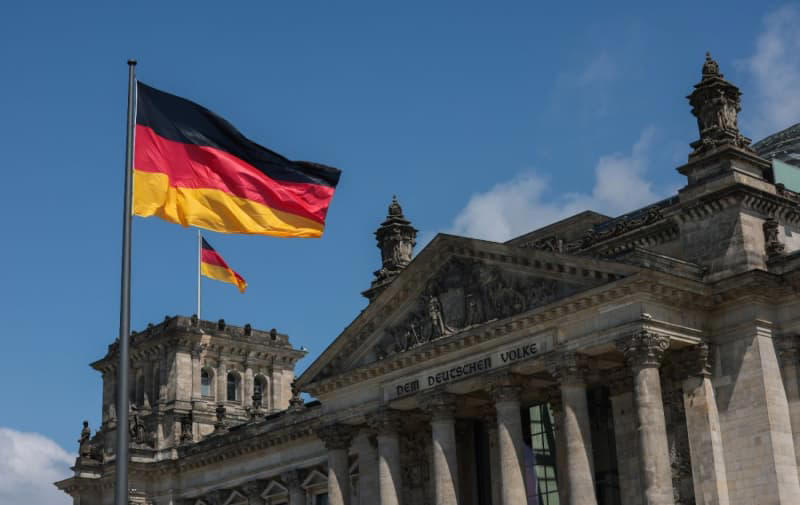Germany backs US plan to use Russian assets for Ukraine - Bloomberg

Photo: Germany has approved $50 billion for Ukraine secured by frozen Russian assets (Getty Images)
The German government is ready to support a US plan to use future proceeds from frozen Russian assets, which are mostly stuck in Europe, to support a $50 billion aid package for Ukraine, Bloomberg reports.
According to the agency, Germany's consent could be a decisive step that will bring Washington and its allies closer to securing a new substantial aid package for Kyiv and guaranteeing US participation regardless of the results of the November elections.
US and EU officials say the US proposal is gaining momentum and is expected to dominate talks between finance ministers and central bank governors of the Group of Seven countries, who are gathering in Stresa, Italy, for their annual meeting that begins May 23.
But German officials do not expect any final agreement before the G7 leaders meet on June 13-15, nor do they expect it to be implemented until next year, the anonymous sources said.
What is at stake is whether the Ukrainian government will be able to remain financially viable (to finance its defense and service its debt) until 2025, as well as a signal to Moscow that Kyiv's support among its G7 allies is not waning.
The use of frozen Russian assets has become more relevant given the uncertainty surrounding the US elections. Political divisions in Washington have already made it difficult for President Joe Biden to provide more assistance to Ukraine, and his rival, former President Donald Trump, has expressed skepticism about supporting Ukraine.
Russian assets
The G7 countries froze about $280 billion worth of Russian central bank assets in response to the February 2022 invasion of Ukraine. Most of these assets are held in Europe at the Belgian clearing house Euroclear.
For months, the United States has been trying to use these assets to help Ukraine. Options have ranged from outright confiscation and transferring the money to Ukraine to securitizing it to issue bonds or using it to secure some form of loan.
The proposals were met with skepticism in many European countries. Governments led by France and Germany have expressed concerns about the impact of such moves on financial stability and the attractiveness of the euro as a reserve currency, as well as their legality.
According to the officials, the latest US proposal was received more positively in European capitals, including Berlin, as it involves the simple use of interest generated by assets without confiscating the principal.
EU countries have already agreed to utilize this revenue stream by taxing it at almost 100% and transferring it to Ukraine twice a year. The G-7 agreement will replace this arrangement.
US plan
The assets are expected to generate about €5 billion a year. According to the proposal under discussion, the G-7 will estimate how much revenue will be generated over a certain number of years and provide this amount to Ukraine in advance.
The final size of the aid package would depend on the length of the repayment terms and how long the assets would be immobilized, but officials say it could be as high as $50 billion. How and who will manage this amount is still being discussed, officials say.
The US hopes that all G7 governments - or at least part of the group - will participate in the advance loan, but officials said Washington is willing to take on the entire loan on its own, provided there are sufficient commitments from the EU that the assets remain immobilized and the loan is repaid.
Long-term uncertainty
If the war ends and Russia agrees to pay for Ukraine's reconstruction, this will raise questions about whether assets will remain frozen and what guarantees will be provided to repay the loan.
The European Central Bank and EU member states are also concerned about protecting Euroclear from any financial risks, such as Russian lawsuits or possible retaliation from Moscow.
In addition, if the EU is forced to enforce the agreement as a sanction, it may have to extend its asset freeze every six months, a procedure that requires unanimity. Although unlikely, this raises the risk that one single EU country could question loan repayments by blocking further freezes.
In April, the G7 Foreign Ministers approved a declaration following their meeting in Italy and postponed the issue of transferring Russian assets to Ukraine until June, when the G7 leaders are scheduled to meet. During this time, a plan for the use of the assets should be prepared.
